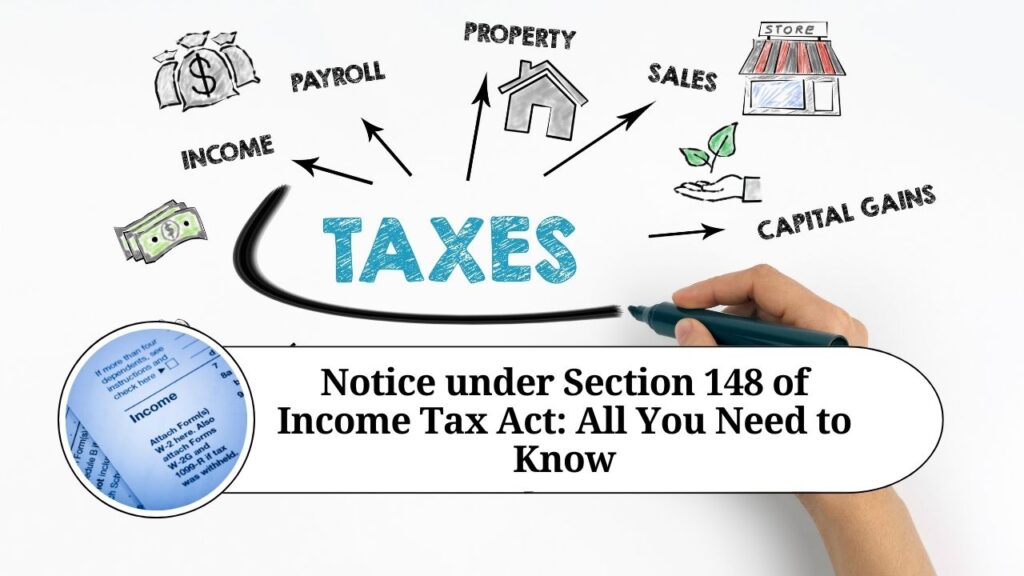
Delhi High Court Declares Reassessment Notice Time-Barred: Portal Glitch Cannot Extend Limitation Period
Court Rules That Notices Must Be Served Within Limitation, Even If Generated Before Deadline
Judgment Reinforces Accountability of Tax Authorities in Digital Era of Income Tax Compliance
By Our Legal Reporter
New Delhi: November 23, 2025:
In a significant ruling, the Delhi High Court has held that an income tax reassessment notice generated on the last day of limitation but uploaded the next day due to a portal glitch is time-barred. The Court emphasized that the responsibility for timely issuance lies with the Income Tax Department, and technical delays cannot be used to extend statutory deadlines.
Also Read: Allahabad High Court Upholds AO’s Decision: ₹122.31 Lakh Cash Deposits Treated as Business Sales
This judgment is expected to have wide implications for reassessment proceedings under the Income Tax Act, 1961, especially in the era of faceless and digital assessments.
Background of the Case
The case involved a reassessment notice issued under Section 148 of the Income Tax Act. The limitation period for issuing the notice expired on June 30, 2025. The Department claimed that the notice was generated and signed on June 30, 2025, at around 9:15 PM. However, due to a technical glitch in the Income Tax Business Application (ITBA) portal, the notice was uploaded and served to the assessee only on July 1, 2025.
The assessee challenged the notice, arguing that it was time-barred since it was not served within the limitation period. The Department contended that the notice was valid because it had been generated before the deadline, and the delay was due to a technical issue beyond its control.
The High Court rejected this argument, ruling in favour of the assessee.
Court’s Observations
- Strict limitation compliance: The Court held that reassessment notices must be served within the statutory limitation period. Generation of the notice alone is insufficient.
- Department’s responsibility: Any delay caused by the ITBA portal or other technical glitches is attributable to the Department, not the taxpayer.
- Reliance on precedent: The Court cited earlier rulings, including Suman Jeet Agarwal v. ITO (2022), where it was held that delays in email dispatch or portal uploads are the Department’s responsibility.
- Time-barred notice: Since the notice was uploaded and served after June 30, 2025, it was declared invalid and quashed.
Broader Context: Reassessment Notices and Limitation
Reassessment proceedings under Section 148 have been a contentious issue in recent years. Courts across India have repeatedly emphasized the importance of adhering to limitation periods.
Some notable precedents include:
- Sarthak Gupta v. ITO (Delhi HC, 2025): The Court set aside reassessment notices issued beyond limitation, following Supreme Court guidance.
- Raw Law Report (2025): The Delhi HC quashed reassessment proceedings, holding that notices issued beyond the limitation period under Section 149(1) are invalid despite extensions under the Taxation and Other Laws (Relaxation of Certain Provisions) Act (TOLA).
- Rajeev Bansal case (ITAT Delhi, 2025): The Tribunal ruled that reassessment notices approved by the wrong authority were invalid and time-barred.
These rulings collectively reinforce the principle that limitation periods are sacrosanct in tax law and cannot be bypassed by administrative or technical excuses.
Implications for Taxpayers
- Protection against delayed notices: Taxpayers cannot be penalized for departmental delays caused by portal glitches or technical issues.
- Certainty in compliance: Businesses and individuals gain clarity that reassessment notices must be served within limitation, ensuring predictability in tax proceedings.
- Reduced litigation: Clear judicial guidance will reduce disputes over delayed notices, saving time and resources for both taxpayers and authorities.
- Digital accountability: The ruling underscores the need for robust IT systems in tax administration, as technical failures can invalidate proceedings.
Expert Opinions
Tax experts have welcomed the judgment, noting that it strengthens taxpayer rights in the digital era. According to practitioners, the ruling ensures that technology cannot be used as an excuse to extend statutory deadlines.
Experts also highlight that the decision aligns with the principle of natural justice, as taxpayers should not suffer due to administrative inefficiencies. They caution, however, that taxpayers must remain vigilant and challenge notices that appear to be time-barred.
Conclusion
The Delhi High Court’s ruling that reassessment notices uploaded after the limitation period are time-barred, even if generated before the deadline, marks a crucial development in tax jurisprudence. It reinforces the principle that limitation periods must be strictly observed and ensures accountability in the digital era of tax administration.
For taxpayers, the message is clear: challenge reassessment notices served beyond limitation, as courts are likely to quash them. For the Income Tax Department, the ruling is a reminder to strengthen IT systems and ensure timely compliance with statutory deadlines.
Suggested Keywords for SEO (Google + ChatGPT)
- Delhi High Court reassessment notice ruling
- Income tax reassessment portal glitch case
- Section 148 reassessment notice limitation
- Time-barred reassessment notice Delhi HC
- ITBA portal glitch reassessment notice
- Suman Jeet Agarwal reassessment case
- Sarthak Gupta Delhi HC reassessment ruling
- Section 149 limitation period income tax
- Delhi HC portal glitch tax notice judgment
- Income Tax reassessment digital compliance India
Also Read: Bombay High Court: Court Time Is Not Private Property; False Pleas Will Attract Heavy Costs
Also Read: Hindu Undivided Family: Tax Benefits, Structure, and Compliance Under Income Tax Act, 1961
Also Read: Capital Gains Account Scheme Updated: New Rules Bring Relief for Taxpayers
Also Read: Supreme Court Slams Income Tax Department for Delay in Filing SLPs
Also Read: Supreme Court Sends Officer’s Choice vs Original Choice Trademark Battle to Mediation
Also Read: Supreme Court Cracks Down on Digital Arrest Scams Using Forged Court Documents